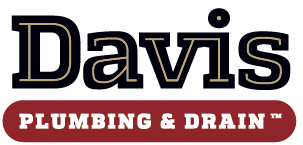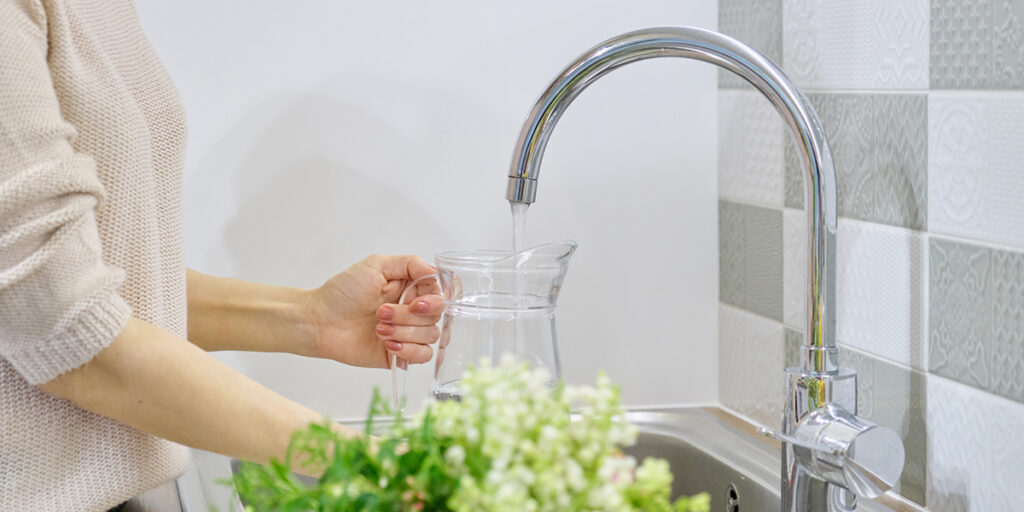Hard water affects numerous homes across the nation. Although hard water doesn’t pose a health threat, it can take a toll on your pipes, boilers, and fixtures, leaving them with excessive scale buildup that significantly decreases their lifespan and efficiency.
Unfortunately, many homeowners don’t know if they have hard water. That’s why Davis Plumbing put together a brief guide to teach you how to tell if you have hard water and what to do to resolve the issue.
Davis Plumbing, Levittown’s trustworthy plumbers, offers premium plumbing services across the greater Levittown area without the premium prices. Continue reading to learn how to tell if you have hard water.
What Is Hard Water?
Hard water contains several natural metals and minerals like calcium and magnesium that leave unsightly residue on your faucets, showerheads, drinking glasses, and more. The minerals in hard water can build up within your home’s piping system, leading to several issues that cost more than a pretty penny to fix. Although some studies show that hard water helps prevent certain cancers and cardiovascular diseases, its peculiar taste and filmy residue make it less ideal than soft water.
How To Tell if You Have Hard Water Using Test Kits
You can examine your water’s hardness using several home tests. While shipping a water sample to a laboratory provides more accurate results, this method is expensive and can take several days to test. However, you can find a few inexpensive ways to analyze your water’s mineral levels.
Below we list some of the best DIY water tests to measure your water’s hardness.
Soapsuds Tests
Step One: Bottle Preparation
Fill one-third of a plastic bottle or a clean glass jug with tap water. You need around eight to ten ounces of water for the best results.
Step Two: Add Liquid Dish Soap
Add ten drops of liquid dish soap to the water and tightly secure the bottle’s cap. You must use liquid soap to carry out the process correctly. Using dishwashing detergent often produces inaccurate results.
Once you add the dish soap, shake the concoction for ten seconds or longer and set the bottle down.
Step Three: Examine the Results
If the mixture produces soap suds quickly and the water below them looks somewhat clear, you have moderately soft water. However, if the combination doesn’t generate many suds and the water below appears cloudy, you have hard water.
Store-Bought Kits
Several home improvement stores carry water testing kits that provide more accurate results than DIY tests. You can choose from numerous water testing kits, so you must ensure your test kit measures water hardness and overall quality.
Wet-Strip Tests
Wet-strip tests rate as some of the best water hardness test kits available. They are easy to use and provide accurate results in just a few short minutes.
Fill a jug with water you want to test and submerge the provided strip. Once the strip changes colors, compare it to the chart provided in the test kit to measure your water’s hardness.
Examine the Numbers
If you want an accurate water quality report without sending your tap water to a laboratory, you can call the municipal water supply and ask for a review. Some even post their water quality report online, making it easy for residents to stay updated on their water’s hardness. Although these reports are often complex and technical, they can give you a good idea of your water’s mineral level.
Most water quality reviews report water hardness as calcium carbonate and measure it using milligrams per liter (mg/L). The lower the calcium carbonate, the softer the water. The water hardness scale in milligrams per liter is as follows.
- Soft water: 0-60 mg/L
- Moderately hard water: 61-120 mg/L
- Hard water: 121-180 mg/L
- Very hard water: 180 mg/L or over
It’s important to note that municipal water supply reports take samples from its treatment facility and might differ slightly from your tap water. As water flows through your piping system, it often accumulates minerals within your pipes, increasing its hardness.
Signs of Hard Water
Figuring out if you have hard water can prove challenging. However, you can use a few indicators to help identify hard water. Let’s review some of the most common signs of hard water.
Mineral Buildup Forms Around Water Fixtures
Hard water often causes small mineral deposits to form around drains, faucets, and other household water fixtures. Removing the white, crusty substance is exceedingly taxing and only becomes more strenuous with time.
Drying your fixtures and drains after use remains one of the best ways to prevent buildup. You can also use a rust, calcium, and lime remover to eliminate mineral deposits around your shower head and faucets.
Excessive Soap Scum
Soap and shampoos don’t dissolve well in hard water, resulting in excessive soap scum within your shower and sinks. If left untreated, the soap scum will create an unsightly residue along your shower walls and leave a heavy film on the glass door.
Spreading a shower cleaner along your shower’s floor and walls immediately after use will prevent soap scum from forming. The cleaner dissolves leftover soap particles, allowing them to flow down the drain without clogging your piping system.
Cloudy Film or Spots Stain Your Glassware
Hard water often leaves a cloudy film on your glassware, especially after running it through a dishwasher. Adding a rinsing agent to your dishwasher will significantly diminish the murky substance, but it isn’t a cure-all solution.
Although it reduces hard water’s effects, it doesn’t resolve the issue entirely. It’s best to hand wash clear glassware and dry them off with a towel.
Contact Davis Plumbing for All Your Plumbing Needs
If you suffer from hard water, a water filtration system by Davis Plumbing can help. Our services can decrease your water’s mineral levels and keep your home’s piping system pristine for years to come. Whether you want to learn how to tell if you have hard water or need routine plumbing maintenance, Davis Plumbing has the experience and expertise to get the job done right.
Contact Davis Plumbing at (844) 226-9872 today!

